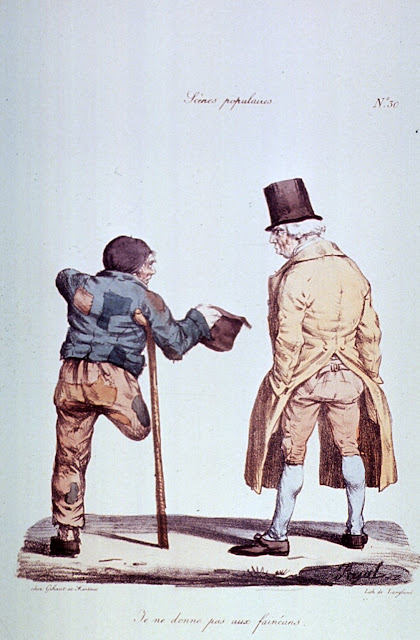I feel that while discussing the history of disability, terminology is both important and controversial. After doing some research, I have determined that it is almost impossible to write about this topic whilst still being politically correct. Virtually every historical term used to refer to the disabled is now deemed offensive in one way or another. I would like to take this opportunity to explore the origins of certain terms for disabled people, as well as what the various approaches to disability terminology are. I will only include terms related to physical impairments as this is what I can relate to.
Medical vs Social Model
This bit may get technical, so I will try and keep it brief. Basically, when it comes to defining disability there are two schools of thought. The first of these is the medical model of disability. This is the belief that the problem lies in the body of the person and this causes the disability. For example, if someone is paralysed and uses a wheelchair as a result, the paralysis is what disables them. This line of thinking has led to doctors attempting to treat patients with disabilities in order to cure them. This model has been heavily criticised by disability activists for confining disabled people to medical institutions and depicting them as charity cases who deserve pity.
To counteract this, the social model of disability emerged. With this narrative, a disability was no longer caused by a fault in someone’s body. Instead, it was the way society reacted to that fault. In this narrative, the problem, i.e. paralysis is deemed an impairment and the lack of wheelchair access is the disability. This model has surpassed the medical model in prominence as it gives more power to people with disabilities and has assisted the efforts of disability rights activists. However, certain authors, such as Tom Shakespeare feel that the social model has gone too far and may even be counterproductive. I would be inclined to agree with him. For instance, some ardent supporters of the social model ignore the fact that some impairments are themselves disabling. I can say from personal experience, that various aches and pains can indeed be debilitating. Therefore, I think that recognising the medical and social aspects of disability are important.
Disability vs Handicap
Alright, now that I have all the boring technical stuff out of the way, it’s time for the fun stuff; the offensive terms!!
The most obvious word to begin with is disability.
According to www.etymonline.com
disability comes from the 1570s and means
"want of power, strength, or ability,". It was not until the
1640s that it came to mean incapacity in the eyes of the law. So, at that point
it did not specifically reference impairment. Some people find the ‘dis’ part
of disability to be offensive as it indicates something is lacking. However,
for me, it is just a word I use to describe myself.
 |
| Horse Racing |
The term handicapped; I find a little less appealing. Hopefully, its origins will help to explain why. The betting game hand in cap was played in the mid-1600s. Two bettors would put their hand, with forfeit money, in a cap (hence the name). The umpire announced the bet and the players would withdraw their hands with the money to accept the bet, or without the money to forfeit it. Therefore, the term hand in cap, later shortened to handicap, was used as an equaliser in sport. From the mid-1700s, weights were added to superior horses, for betting purposes to ‘handicap’ them. So, understandably, I don’t like being compared to a horse!!
Other Derogatory Terms
 |
| Crippled Beggar |
There are several other words for disabilities used in the past which are now deemed offensive. I will briefly discuss some of them here. One of the most offensive words in relation to physical impairment is cripple. It appears constantly in historical records. So much so, that it no longer seems offensive to me. Most definitions indicate that someone who is crippled is deprived of at least one limb. Therefore, they creep, or limp, or appear crooked or bent. Interestingly, the definition for crip on www.etymonline.com indicates that cripple was shortened to crip in the U.S. in 1918. This is the same period wounded veterans were returning from WW1. Crippled can also mean badly damaged, as in, the economy was crippled.
Lame is another term which pops up regularly in historical records. It originates from the 1300s and meant “imperfect”. Many of its root words in Old English, Dutch and German, translate as “weak”, “maimed”, or “broken”. In recent times, lame has come to mean uncool. As a result, it may have lost some of its connection to disability.
I hope this helps explain where some of the derogatory terms for disability originated and why they are deemed offensive. I personally don’t find the words themselves offensive. Instead I judge them by their intent and context.
Next week I will start my series looking at disabled historical figures, beginning with the Roman Emperor Claudius.
The Wheelchair Historian
Further Reading
Hahn,
Harlan, “Towards a Politics of Disability: Definitions, Disciplines and
Policies.” Social Science Journal 22.4 (1985): 87-105. https://www.independentliving.org/docs4/hahn2.html
Accessed: 15 July 2020.
Kuppers, Petra.
(2010). Introduction. Profession, 107-111. www.jstor.org/stable/41419867 Accessed: 15 July 2020.
National Disability Authority http://nda.ie/Publications/Attitudes/Appropriate-Terms-to-Use-about-Disability/ Accessed: 17 July 2020.
Online Etymology Dictionary www.etymonline.com Accessed: 17 July 2020.
Shakespeare, Tom, and N. Watson. “The Social Model of Disability: An Outdated Ideology?” Exploring Theories and Expanding Methodologies: Where Are We and Where Do We Need to Go? Research in Social Science and Disability. Ed. S. Barnartt and B. Altman. Vol.2. Amsterdam: JAI, 2001. 9-28. https://www.um.es/discatif/PROYECTO_DISCATIF/Textos_discapacidad/00_Shakespeare2.pdf Accessed: 15 July 2020.
Today
I found out http://www.todayifoundout.com/index.php/2013/12/origin-word-handicap/
Accessed: 17 July 2020.
U.K. Government https://www.gov.uk/government/publications/inclusive-communication/inclusive-language-words-to-use-and-avoid-when-writing-about-disability Accessed: 17 July 2020.
Zola, Irving. “Self, Identity, and the Naming Question: Reflections on the Language of Disability.” Social Science and Medicine 36.2 (1993): 167-73.

No comments:
Post a Comment